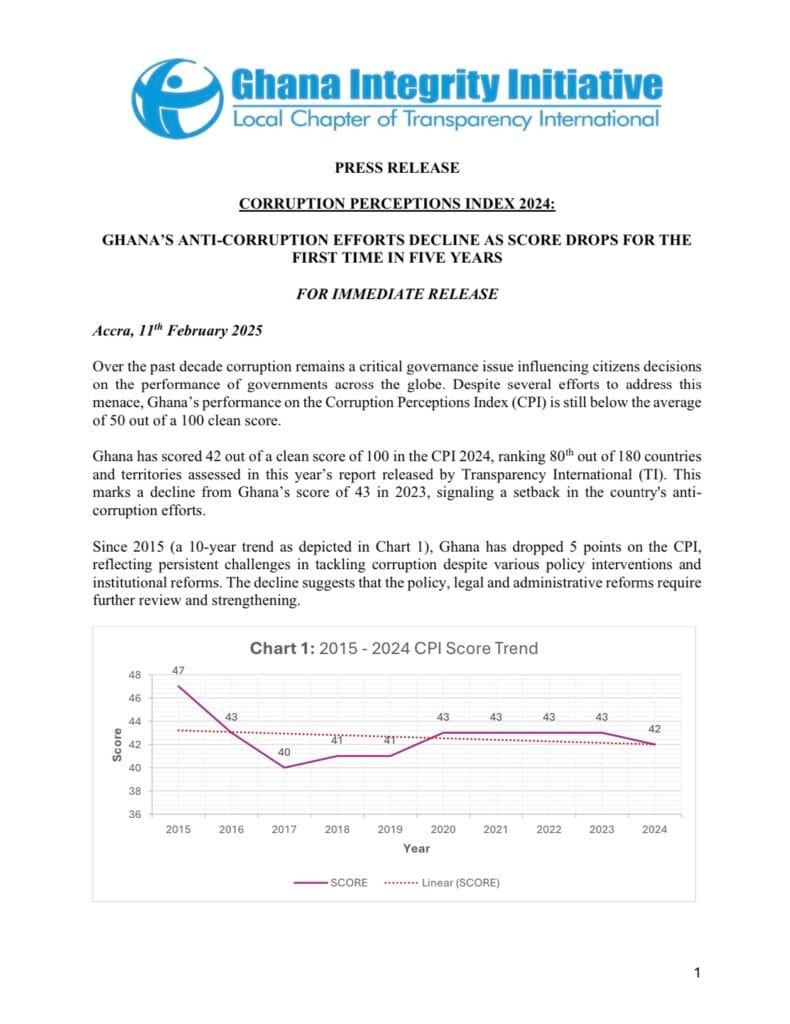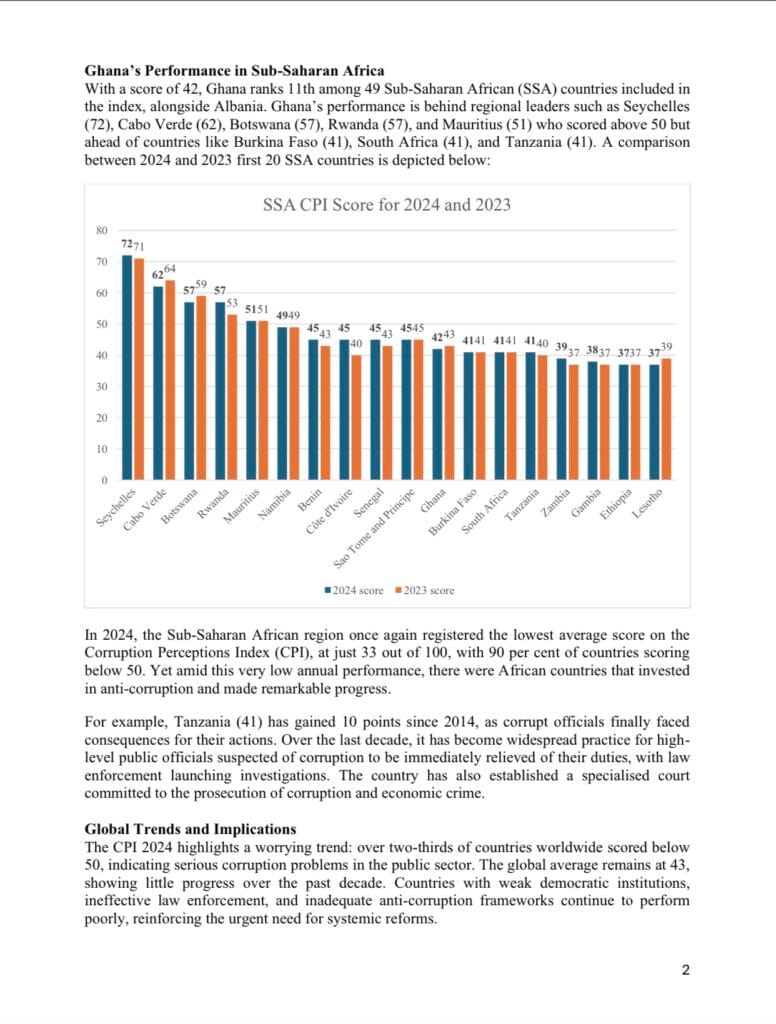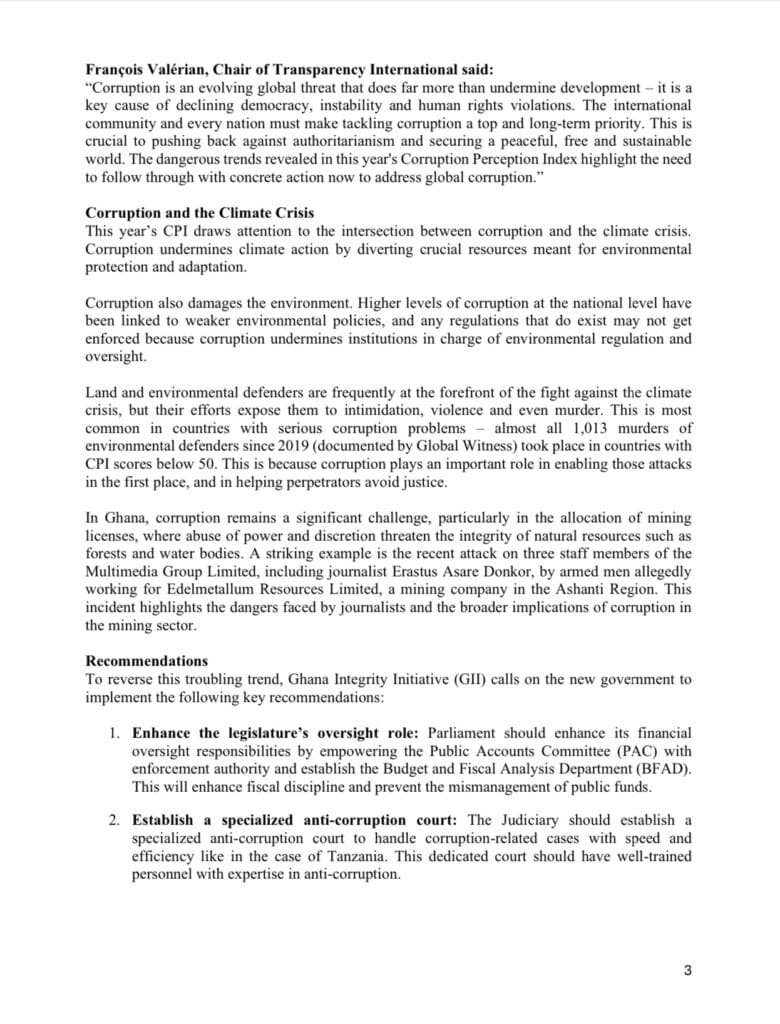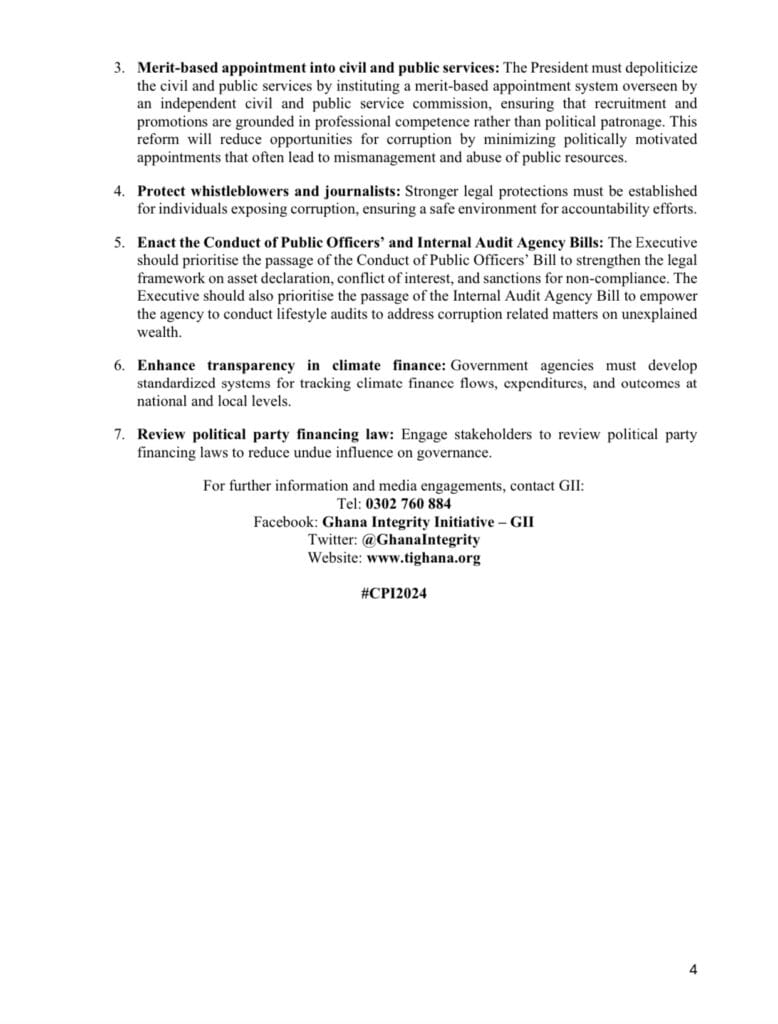Accra, February 11, 2025 – Ghana’s fight against corruption has suffered a setback, as the country’s score on the 2024 Corruption Perceptions Index (CPI) has declined for the first time in five years.
According to Transparency International’s latest report, Ghana scored 42 out of a possible 100, ranking 80th out of 180 countries.

This marks a drop from the 2023 score of 43, highlighting persistent challenges in governance and accountability.
The CPI assesses perceptions of public sector corruption, with scores below 50 indicating serious corruption concerns. Since 2015, Ghana has lost five points on the index, reflecting the difficulty of sustaining anti-corruption reforms.

Analysts suggest that legal, policy, and administrative measures require urgent review and strengthening.
Regionally, Ghana ranks 11th out of 49 Sub-Saharan African (SSA) countries, sharing its position with Albania.
It trails behind regional leaders such as Seychelles (72), Cabo Verde (62), Botswana (57), Rwanda (57), and Mauritius (51), but performs better than Burkina Faso (41), South Africa (41), and Tanzania (41).

The Sub-Saharan region continues to struggle with corruption, registering an average CPI score of just 33, with 90% of countries scoring below 50.
Despite the general decline, Tanzania has demonstrated significant progress, gaining 10 points since 2014 by enforcing strict legal actions against corrupt officials. The report suggests that Ghana could benefit from similar decisive measures.
The 2024 CPI report indicates a concerning global trend, with over two-thirds of countries scoring below 50. The worldwide average remains stagnant at 43, underscoring persistent corruption challenges.
Countries with weak democratic institutions, ineffective law enforcement, and inadequate anti-corruption frameworks continue to perform poorly.
François Valérian, Chair of Transparency International, emphasized that corruption undermines democracy, fuels instability, and violates human rights.
He called on governments worldwide to prioritize long-term anti-corruption efforts to prevent authoritarianism and secure sustainable development.
The report highlights the link between corruption and climate change, revealing that corruption diverts crucial environmental protection resources.

In countries with high corruption levels, weak environmental policies and poor regulatory enforcement exacerbate ecological damage.
Ghana’s mining sector has come under scrutiny, particularly concerning the discretionary allocation of mining licenses, which threatens forests and water bodies.
The recent attack on three staff members of the Multimedia Group Limited, allegedly by armed men associated with a mining company, underscores the dangers faced by journalists reporting on corruption.
In response to the report’s findings, the Ghana Integrity Initiative (GII) has outlined key recommendations for the government:
- Enhancing Parliamentary Oversight – Strengthening the Public Accounts Committee (PAC) with enforcement powers and establishing a Budget and Fiscal Analysis Department.
- Establishing a Specialized Anti-Corruption Court – A dedicated court with trained personnel to expedite corruption cases.
- Merit-Based Appointments in Public Service – Depoliticizing civil service recruitment to minimize politically motivated appointments.
- Protecting Whistleblowers and Journalists – Strengthening legal protections for those exposing corruption.
- Passing the Conduct of Public Officers’ and Internal Audit Agency Bills – Strengthening asset declaration, conflict of interest regulations, and lifestyle audits.
- Enhancing Transparency in Climate Finance – Implementing standardized systems to track climate finance allocations.
- Reviewing Political Party Financing Laws – Engaging stakeholders to regulate political party funding and reduce undue influence.
The Ghana Integrity Initiative has urged the government to act decisively to reverse the decline in Ghana’s CPI score. Without immediate reforms, the country risks further setbacks in its fight against corruption.
Story By: Robicon Mornahson






